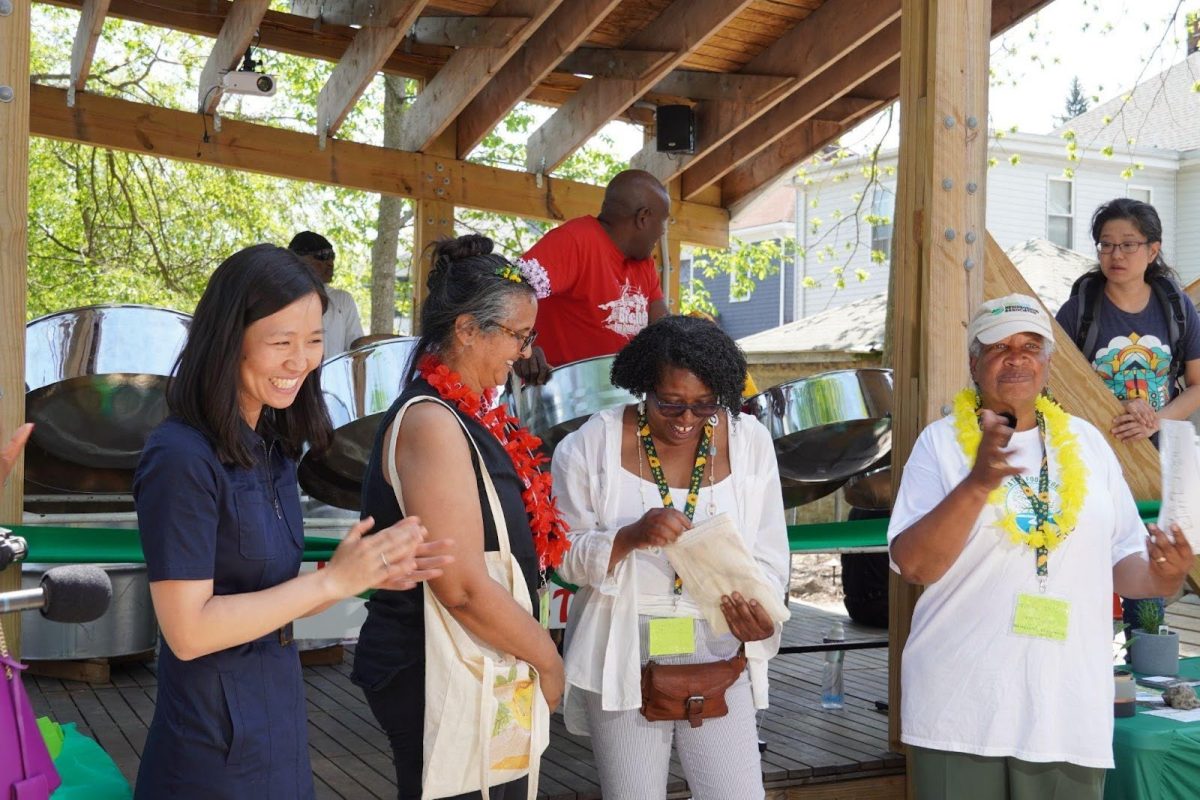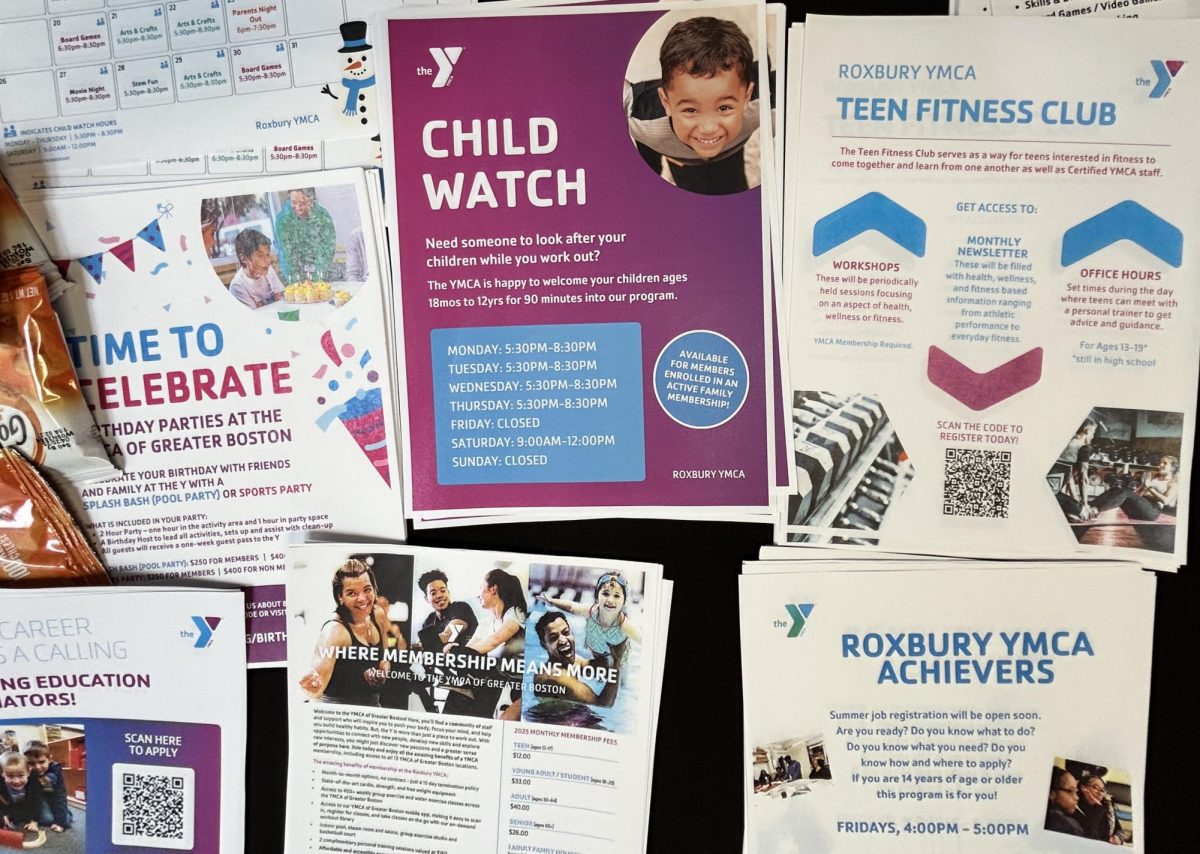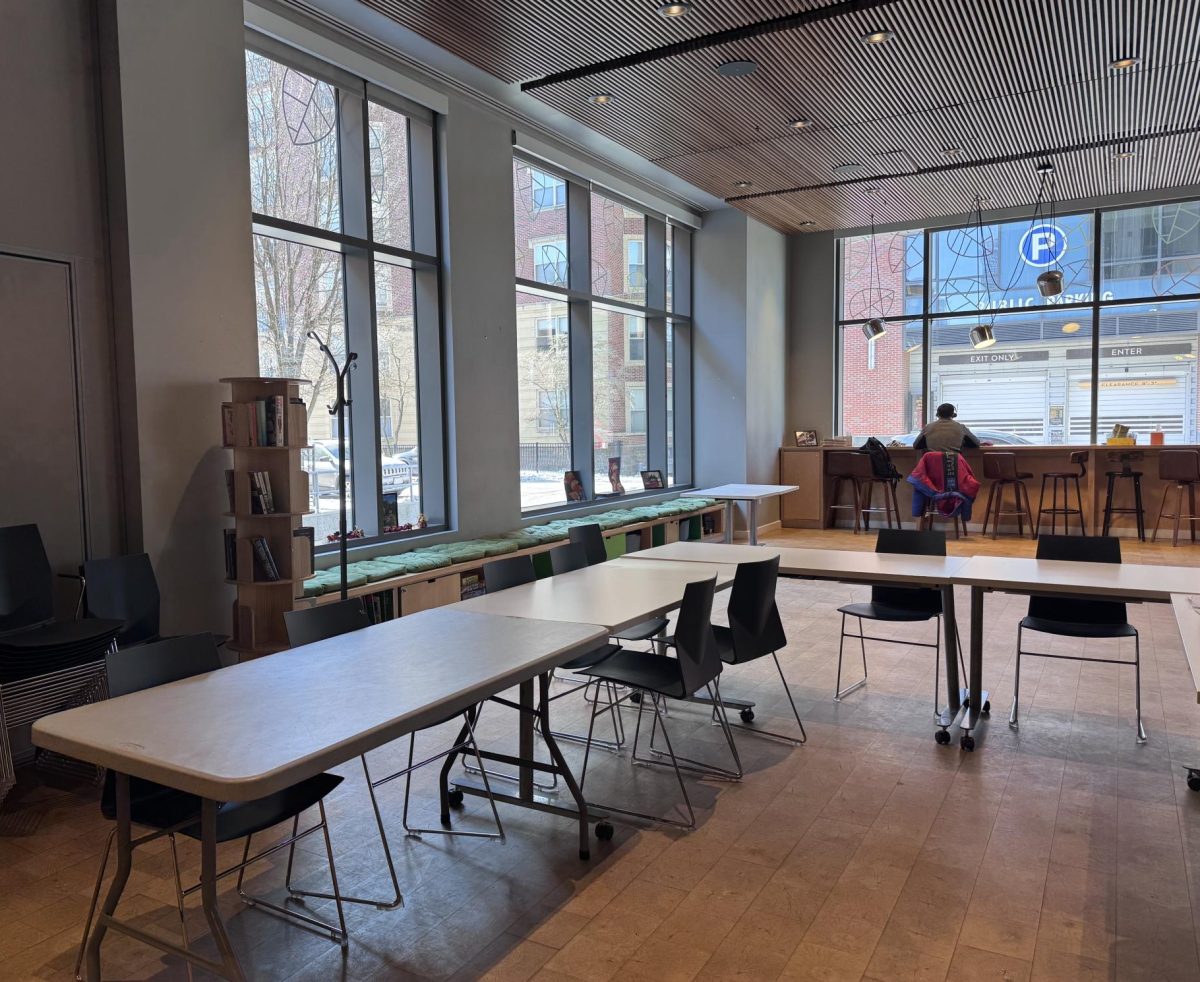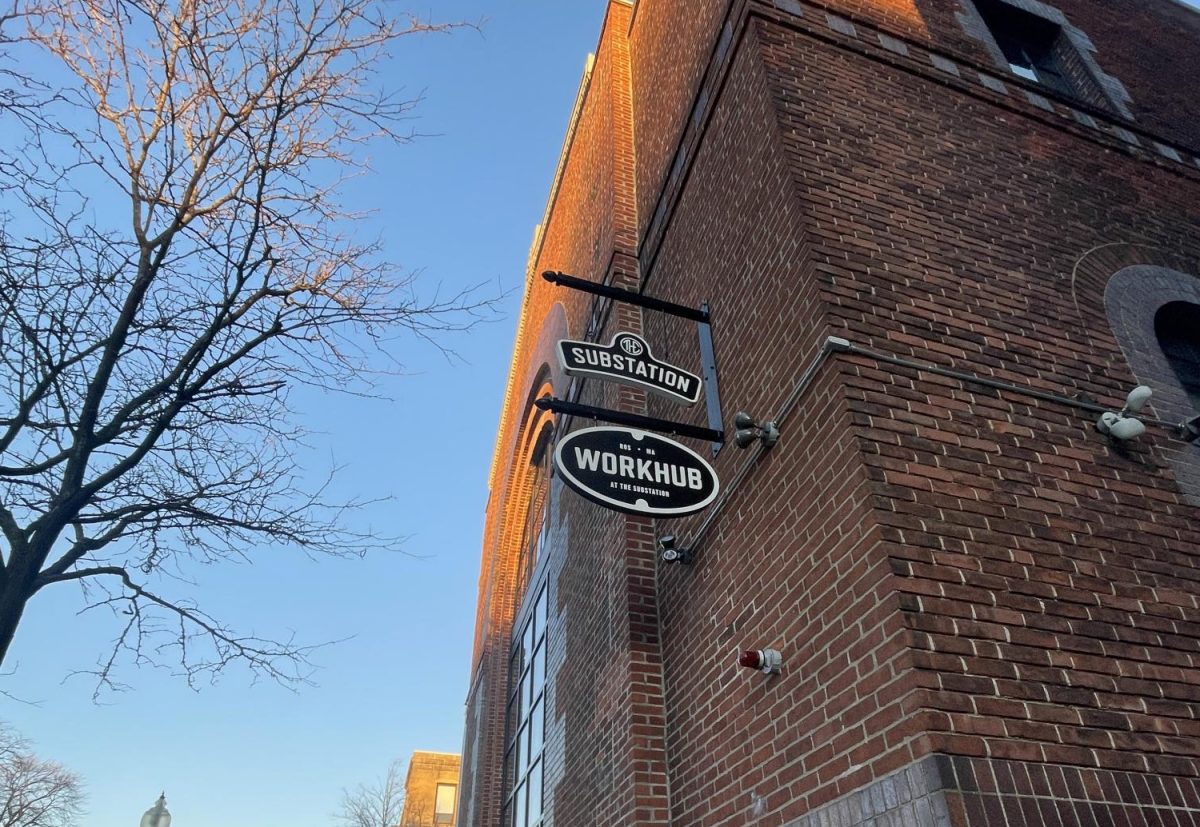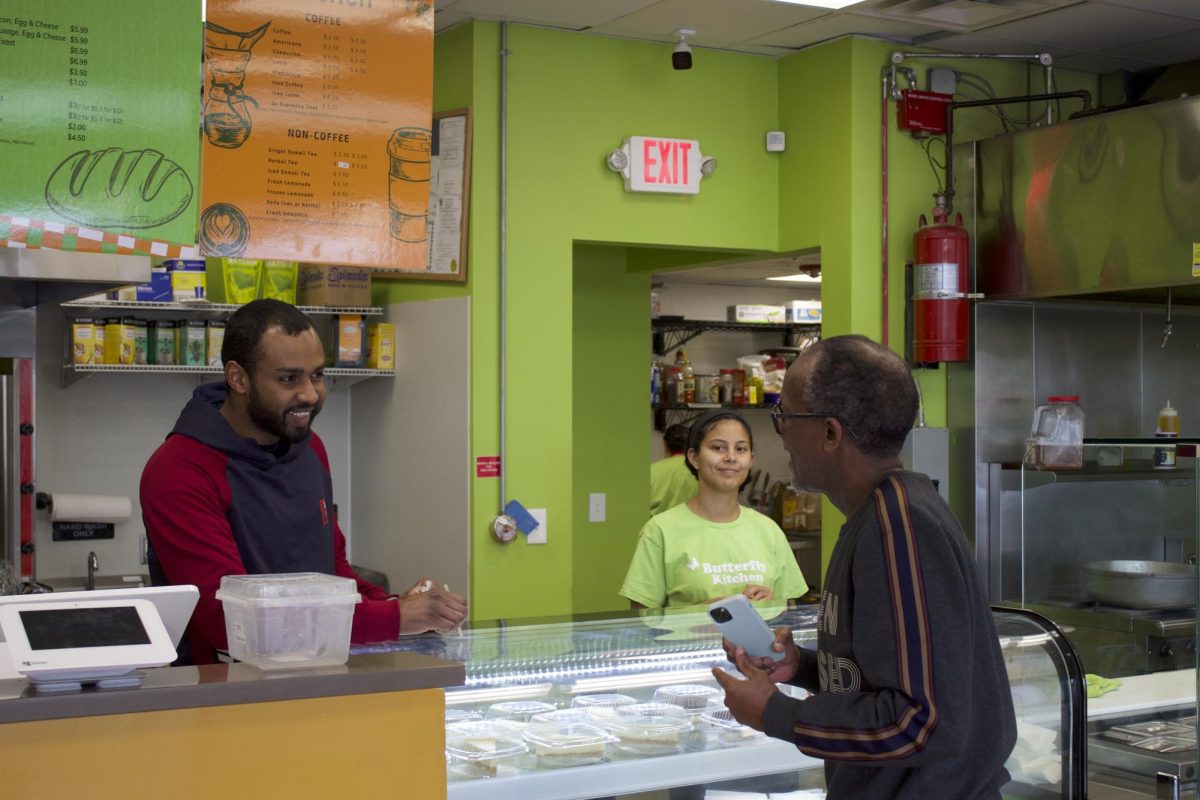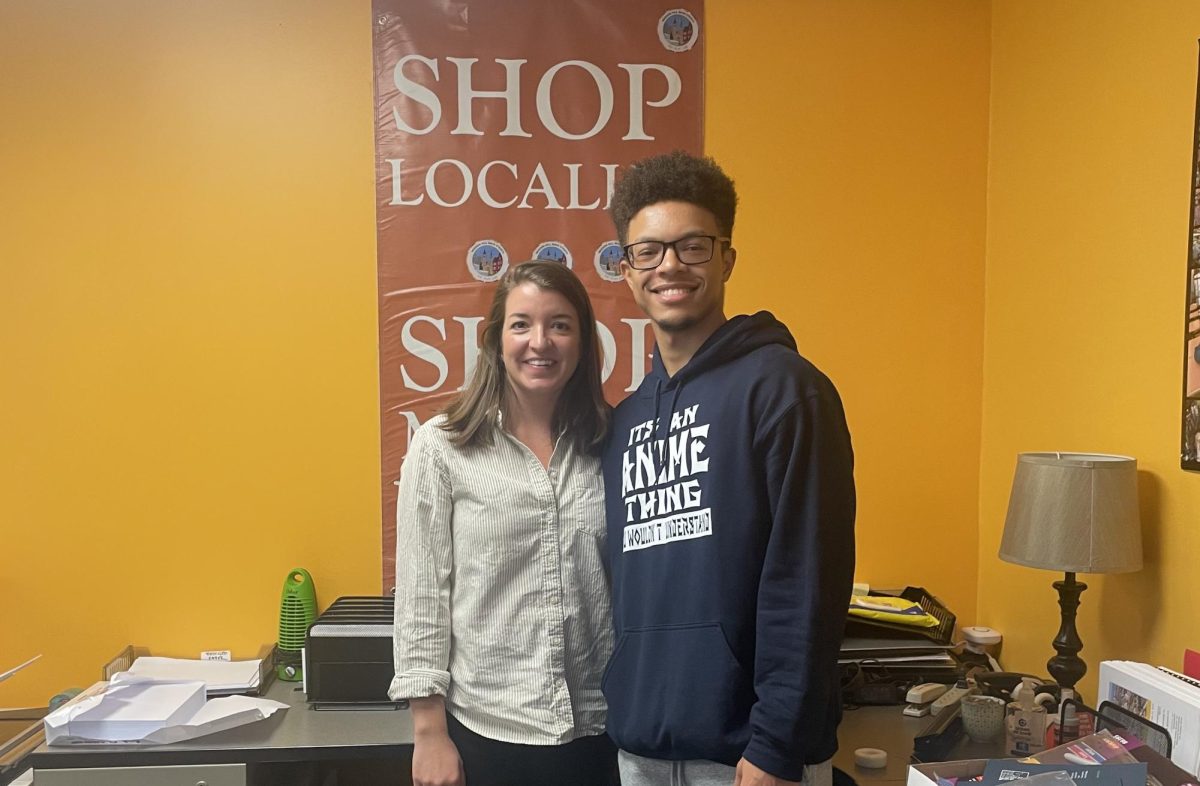An interactive stewardship program led by the Boston Food Forest Coalition is working alongside Boston residents to build and maintain their own parks in an effort to mitigate local climate impacts and improve access to the outdoors. These “edible parks” or “food forests” — outside spaces used for agricultural and recreational purposes — are designed to promote community engagement and encourage participation in urban gardening projects.
According to a UMass Boston report, global annual temperatures are predicted to increase by 3 to 10 degrees Fahrenheit by 2100 as a result of climate change. In cities like Boston, some neighborhoods are especially burdened by rising temperatures, getting warmer than surrounding areas and leading to increases in electrical energy costs from air conditioning, as well as heat-related health concerns. The impacts of this phenomenon, called urban heat island effect, can be mitigated by building green spaces, like parks or urban wilds.
To combat this crisis at the neighborhood level, non-profit organization the Boston Food Forest Coalition is building parks across Boston, populating them with strategically selected plants and greenery. The result is a “food forest” – a collection of perennial plants grown side-by-side to replicate an ecosystem, which provides communities nearby with fresh produce while contributing to a healthy environment.
The coalition does this by teaming up with residents and community groups throughout Boston’s urban neighborhoods and transforming vacant lots into parks where community members can grow their own produce, including fruit trees and herb beds. Since launching in 2013, the 10 stewardship teams have planted over 400 fruit and nut trees and are planning to plant 1,000 by 2025.
By giving residents the tools to design their own forests and the plants inside them, the coalition hopes to educate Bostonians on how to manage these green spaces independently and for the benefit of their communities.
This is the focus of Tye Thomas, 41, who joined the coalition a year and a half ago. He serves as the manager of education, stewardship and management at the organization, working directly with volunteers across 10 food forests, including parks in Dorchester, Egleston and Mattapan. Thomas says these members – the coalition calls them stewards – are the driving force behind the project’s mission.
“A community garden usually has community ownership—some ownership of the space so they can protect it from development. We partner with [people who have identified] a lot that’s in their community or we find one, develop that and fold it into a [the organization’s] community land trust,” Thomas said. “The stewards are the core group that then organize the neighbors and the volunteers”
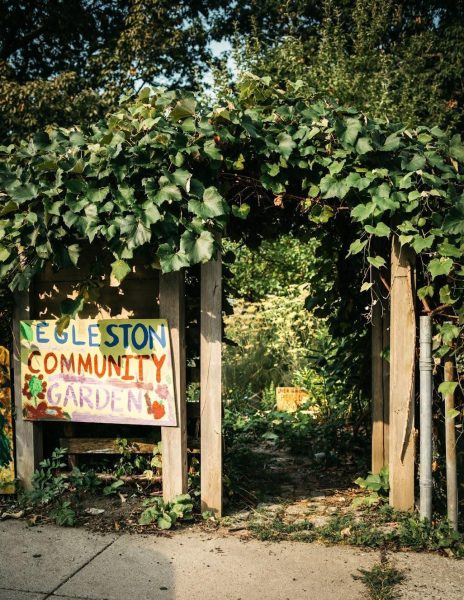
Instead of starting projects around the city, the Food Forest Coalition partners first with neighbors in the Boston community who have already identified a need for green space in their area.
“We respond to neighborhood membership as opposed to going in and pointing at something that should be done,” said Hope Kelley, manager of communications. “It’s really the folks who live there and have the lived experience and the knowledge of what their neighborhoods need.”
Kelley, 30, grew up in Massachusetts admiring the woodlands and swamps in the area. She now works on expanding the coalition’s story to Boston residents with the same love for nature and desire to create change in the community.
Building a sense of fellowship among stewards is an important part of Boston Food Forest Coalition’s mission. Stewards are trained through an education program offered by the coalition to work alongside their peers in their respective parks and neighboring sites. They are taught about ecology, learning skills like how to prune a fruit tree or harvest a nut crop. On top of these practical skills, the coalition provides leadership training for stewards who plan to manage the program.
“That social support could look like how to host a workshop where you invite stewards from other teams to your site,” Kelley said, “and how to become leaders in this movement across the city and this coalition that we’re building.”
Community engagement at the coalition takes a “come as you are” approach, and welcomes people with any level of expertise to participate.
“There’s an option and availability for everyone,” Thomas said. “It’s just about jumping into a team and then finding a way to contribute.”
Whether expert or novice, the coalition makes space for all those who hope to see a greener city.
“Having different skill sets on a stewardship team is really valuable, so there could be one person who worked as a farmer for the beginning of their career and they’re very familiar with different annual and perennial crops,” said Kelley. “Then you could have someone who was like a youth program coordinator, and they understand how to work with people who are coming to a space for the first time.”
Stewards have the freedom to not only dedicate their time to one space but disperse throughout the city if they see fit. For instance, the volunteers can visit the Old West Church Location in the West End for small-scale farm experience, while the Boston Nature Center in Mattapan — located on a site owned by non-profit environment group Mass Audubon — is best for those interested in caring for the coalition’s popular flagship park.
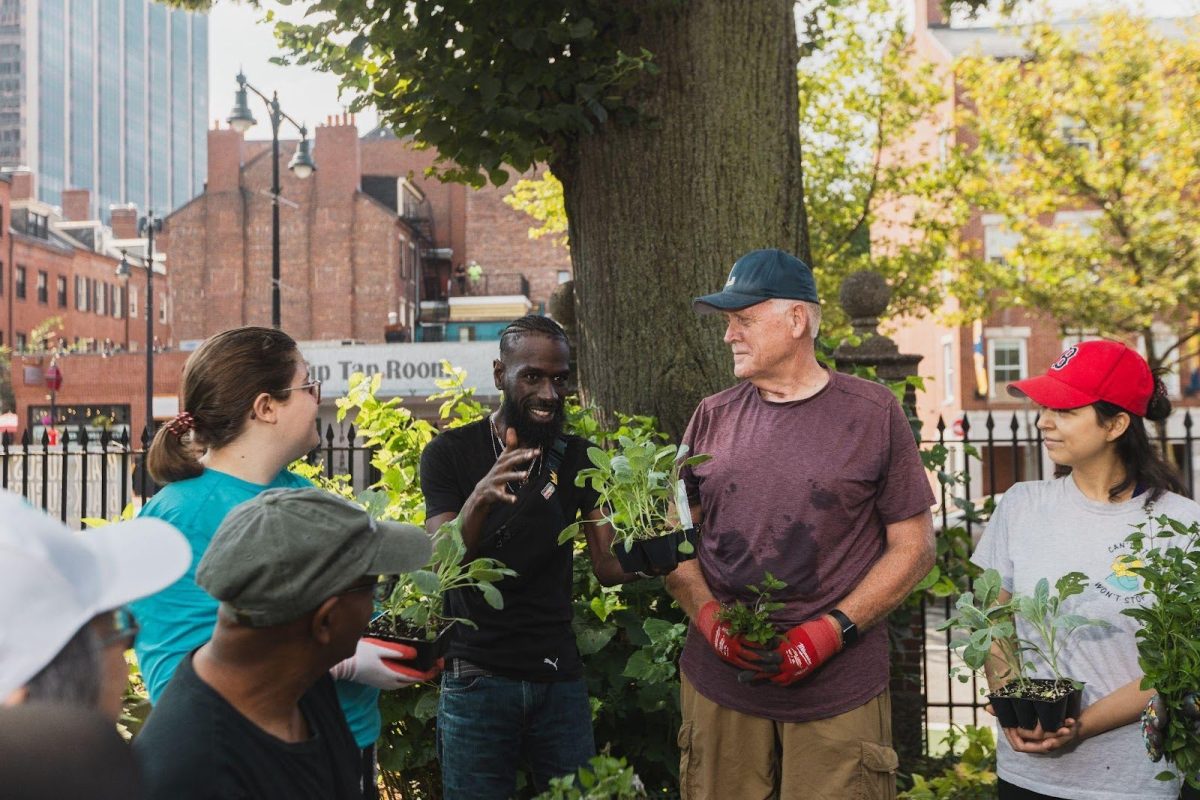
“It makes for a very diverse and interesting set of work,” Thomas said. “But I think it also helps make each community food forest a benefit and a jewel in itself instead of a replica model we have to try and make fit.”
The Boston Food Forest Coalition wants members to own the vision of what they believe benefits their community. To do so, they provide stewards with instructors who can provide introductory activities to transition them into the stewardship program.
“It’s not even low-threshold. There’s no threshold. If you’re interested, show up,” Thomas said. “The idea is that if you get there, we can figure out the rest and I definitely want a lot of people in the community to realize that.”

